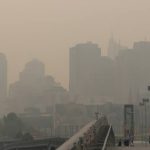Living in the crosshairs of COVID-19

For the bulk of my long life I have been behaving in ways – from my frequent use of public transport to attendance at mass events – which are now widely believed to be dangerous.
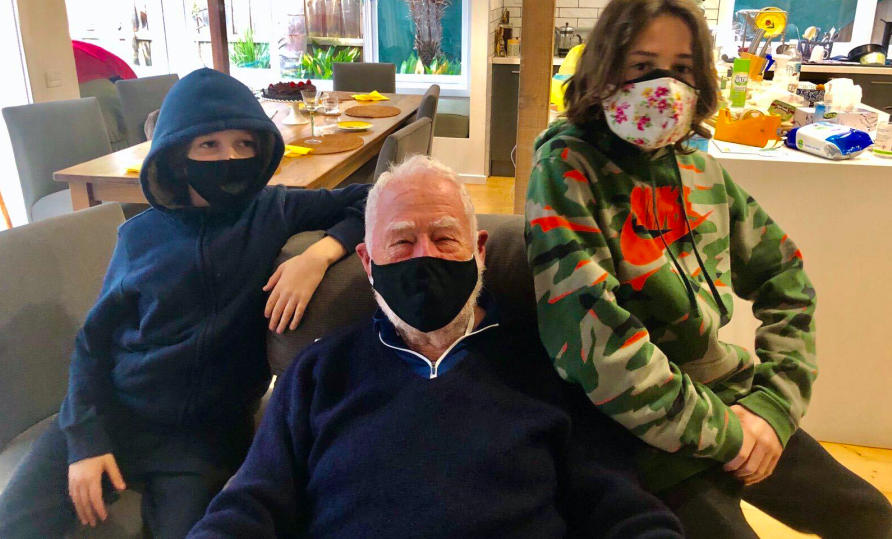
Professor Emeritus John Power with just two of his grandchildren.
So long as a means of reliable vaccination remains undiscovered, it will continue to be considered dangerous.
Although I am not a medical scientist, I have spent a lifetime in research, and I understand the processes required to undertake complex studies and produce findings.
For this reason, I do not believe that such a discovery will be delivered soon, despite the urgent efforts of medical researchers.
As a retired person, I have been extremely careful to follow government instructions on how I should behave during the lockdowns we have experienced in 2020.
Of particular difficulty has been maintaining relationships with my seven grandchildren, for they have been identified as being the most prominent of the dangers confronting us.
As threatening as it is, I have long been receptive to the warning that one of my grandchildren could be a carrier but unwittingly asymptomatic and, therefore, could risk infecting me fatally.
Notwithstanding this risk, I undoubtedly will soon face State and Commonwealth decisions on behavioural matters that will probably cost me my life.
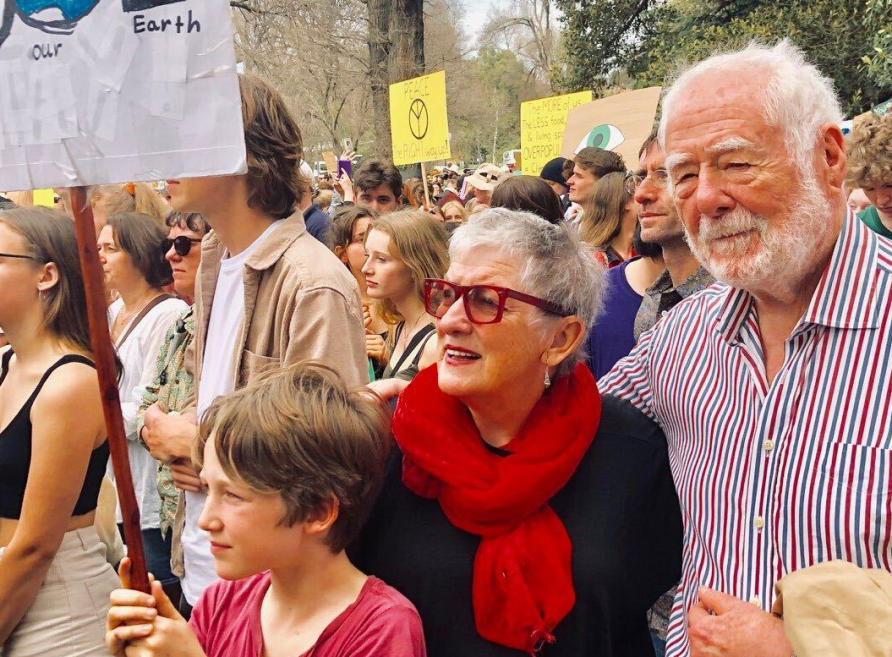
Professor Power with his wife and grandchild at an environmental rally in 2019, before COVID-19.
So long as a reliable vaccine remains undiscovered, the restoration of economic life inevitably carries costs to human life, if only because intensive human interaction, which is always present in economic life, is itself dangerous.
The critical decision which all of our political parties will have to take, is what level of mortality they are willing to tolerate.
The ongoing discussion around ‘flattening the curve’ might finally receive some credit here, for it has started to prepare our governments for what will be momentous decisions.
Most of them will probably end up adopting policies similar to the government of Sweden, which, from the outset of the crisis, has been content with accepting that old people like me will die.
Nevertheless, advocacy groups catering for the interests of the aged will take the lead here, because the costs of COVID-19 are so skewed.
I am something like one hundred-fold more likely than my school age grandchildren to receive a serious illness from COVID-19. This will lead to greater funding for aged care, but the real focus of the parties will continue to be the levels of mortality which each of them is prepared to tolerate.
As things stand, my wife and I are planning soon to move to a place that specialises in accommodating the aged, safely.
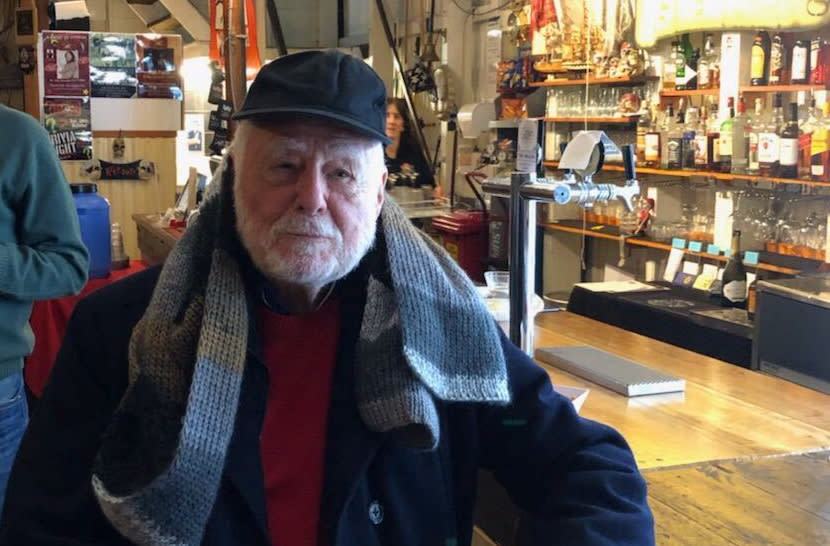
The restoration of economic life inevitably carries costs to human life, says Professor Power.
So, the immediate future is bright enough. But what lies further ahead?
Surely, as restrictions loosen up, I shall find irresistible some of the things that have meant so much in my long life. A birthday visit to Canberra, where three of our grandchildren live? A family holiday, where all our grandchildren and our four children and their partners could get together? An end- of-year function with colleagues? An AFL Grand Final or a Boxing Day Test, both usually at the MCG?
Just listing some of those delights which are temporarily denied me but which will be partially restored at some time in the future, is more than enough to persuade me that I shall, inadvertently or not, break one of the instructions of the government of the day, and risk my life in doing so.
And what about death itself?
It’s not a particularly pleasant prospect to die from COVID-19. It’s likely to be anonymous, for I am unlikely to know the identity of the person who has incurred the infection that has killed me.
The very uncertainty that will surround my death carries with it the prospect that the members of my family might begin to wonder: might I be the one who has caused his death?
And it is likely to be extremely lonely, enveloped by health concerns. As a result of these concerns, I am likely to be separated from the people I love, surrounded by masked health care workers, one of whose primary concerns, quite reasonably, is not to become infected by me.
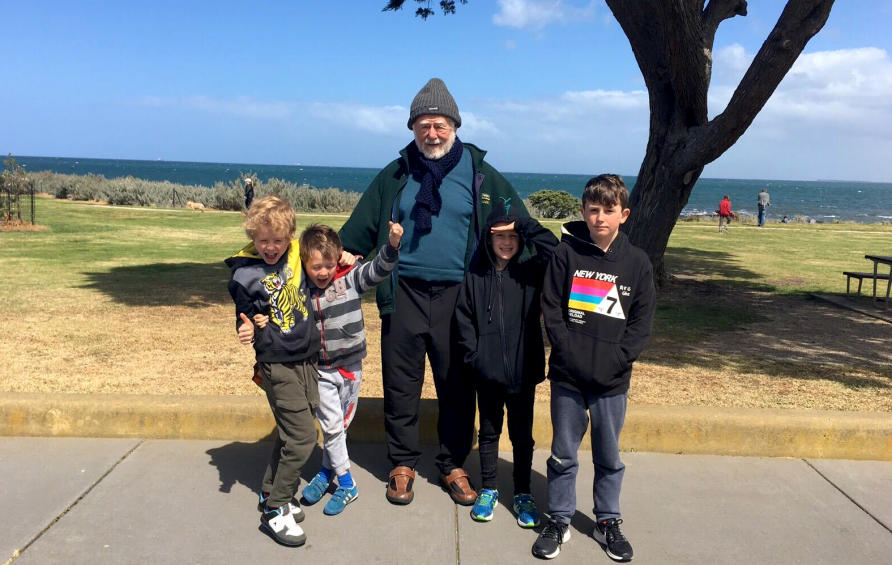
Professor Power shall find irresistible some of the things that have meant so much in his long life.
Finally, a word about the implications for public policy.
Members of the younger generations of citizenry, who will be long-afflicted by a high level of COVID-19-related debt, might well conclude that I should face up to my death.
I am not necessarily averse to this proposition, as my generation has not seriously addressed the bleak and uncertain future with which our descendants will have to grapple.
By the time future citizens finally get around to doing something meaningful about climate change, they may discover that they are in fact better equipped to deal with versions of coronavirus infection.
Which is just as well, because the problems associated with global warming are set to make the 2020 coronavirus crisis seem like a sideshow.
This article was published by Pursuit.
John Power is Professor Emeritus of Political Science in the University of Melbourne. He has a long-standing interest in the theory and practice of democracy.












